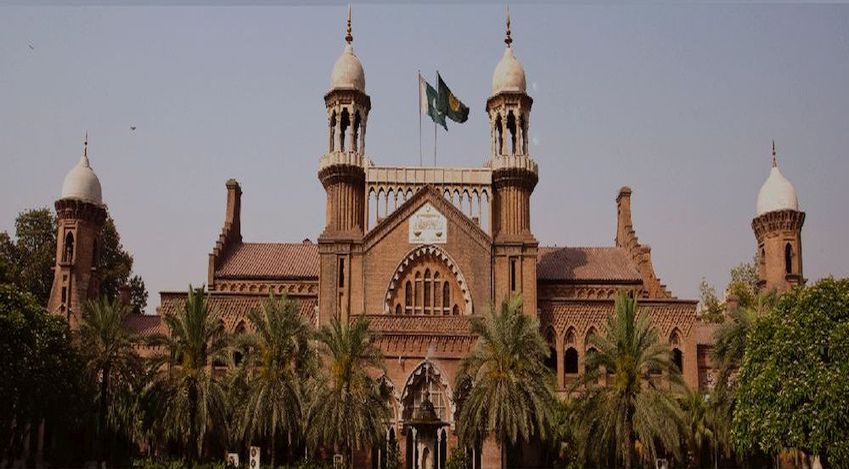Lahore High Court Acquitted Two Accused Persons due to Contradiction in Evidence
Islamabad 11-03-2025: In a significant ruling, the Lahore High Court, Multan Bench, has overturned the conviction of two individuals accused persons, who were sentenced to life imprisonment for their alleged involvement in a double murder case. The Court, in [Criminal Appeal No. 1035 of 2023], set aside the Trial Court’s judgment, citing serious discrepancies in the prosecution’s case and granting the benefit of the doubt to the accused.
The accused persons were convicted under Section 302(b) of the Pakistan Penal Code (PPC) for the alleged murder of two deceased persons in a shooting incident that took place on October 23, 2021. The Additional Sessions Judge, Jatoi, District Muzaffargarh, sentenced them to life imprisonment and directed them to pay Rs. 1 million each as compensation to the legal heirs of the deceased.
The Appellants challenged their conviction before the Lahore High Court under Section 410 of the Criminal Procedure Code (Cr.P.C), arguing that their conviction was based on unreliable witness testimonies and unsubstantiated forensic evidence.
Mr. Justice Muhammad Jawad Zafar, in his detailed judgment, pointed out multiple legal and evidentiary flaws in the prosecution’s case, leading to the Appellants’ acquittal. The Court ruled that the prosecution failed to prove the case beyond a reasonable doubt, emphasizing the following:
- The time of the crime mentioned in the FIR (5:00 PM) contradicted the post-mortem findings, which estimated the death to have occurred 8-10 hours earlier.
- Rigor mortis could not have developed fully in the short time stated in the FIR, contradicting the prosecution’s version.
- The number of injuries recorded in the medical report did not match the account of eyewitnesses.
- Zafar Ali Abbasi Vs. Zafar Ali Abbasi (2024 SCMR 1773)
- Asad Rehmat Vs. The State (2019 SCMR 1156)
- Witnesses failed to justify their presence at the crime scene, making them chance witnesses.
- The vehicle used to transport the deceased was never produced, raising further doubts about the authenticity of the prosecution’s account.
- Gulfam Vs. The State (2017 SCMR 1189)
- Muhammad Hassan Vs. The State (2024 SCMR 1427)
- The name of the appellant Muhammad Shan was not in the original FIR but was added four months later via a supplementary statement.
- The Court held that delayed supplementary statements are afterthoughts and carry no weight unless independently corroborated.
- Muhammad Kamran Vs. The State (2021 SCMR 479)
- Imtiaz Latif Vs. The State (2024 SCMR 1169)
- The confession of co-accused was used to implicate the appellants, but the Court ruled that it was not recorded before a magistrate under Section 164 Cr.P.C and was thus inadmissible.
- The Court further clarified that a co-accused’s confession cannot be the sole basis for conviction.
- Rehmatullah Vs. The State (2024 SCMR 1782)
- Faqir Ullah Vs. Khalil-uz-Zanan (1999 SCMR 2203)
- The CCTV footage used to implicate the accused was not obtained through proper forensic procedures and lacked a photogrammetry test to confirm their identity.
- The person who provided the footage was never called as a witness, making it unreliable.
- Ishtiaq Ahmed Mirza Vs. Federation of Pakistan (PLD 2019 SC 675)
- Hayatullah Vs. The State (2018 SCMR 2092)
- The prosecution claimed that the motive was enmity, but no independent evidence was produced to prove this.
- The Court held that motive alone cannot sustain a conviction if the rest of the evidence is weak.
- Muhammad Riaz Vs. The State (2024 SCMR 1839)
- The Court emphasized that even a single reasonable doubt is sufficient to acquit an accused.
- The accused cannot be convicted on weak circumstantial evidence.
- Muhammad Mansha Vs. The State (2018 SCMR 772)
- Muhammad Akram Vs. The State (2009 SCMR 230)
Considering these serious flaws in the prosecution’s case, the Lahore High Court acquitted both accused, setting aside their convictions and ordering their immediate release unless required in another case.
This decision reinforces key legal principles in criminal jurisprudence, particularly:
- The prosecution must establish guilt beyond a reasonable doubt.
- Medical evidence takes precedence over unreliable eyewitness accounts.
- Delayed supplementary statements weaken the prosecution’s case.
- Electronic evidence must meet strict admissibility standards.
Confessions to police officers are inadmissible unless recorded before a magistrate.
Powered by Froala Editor








